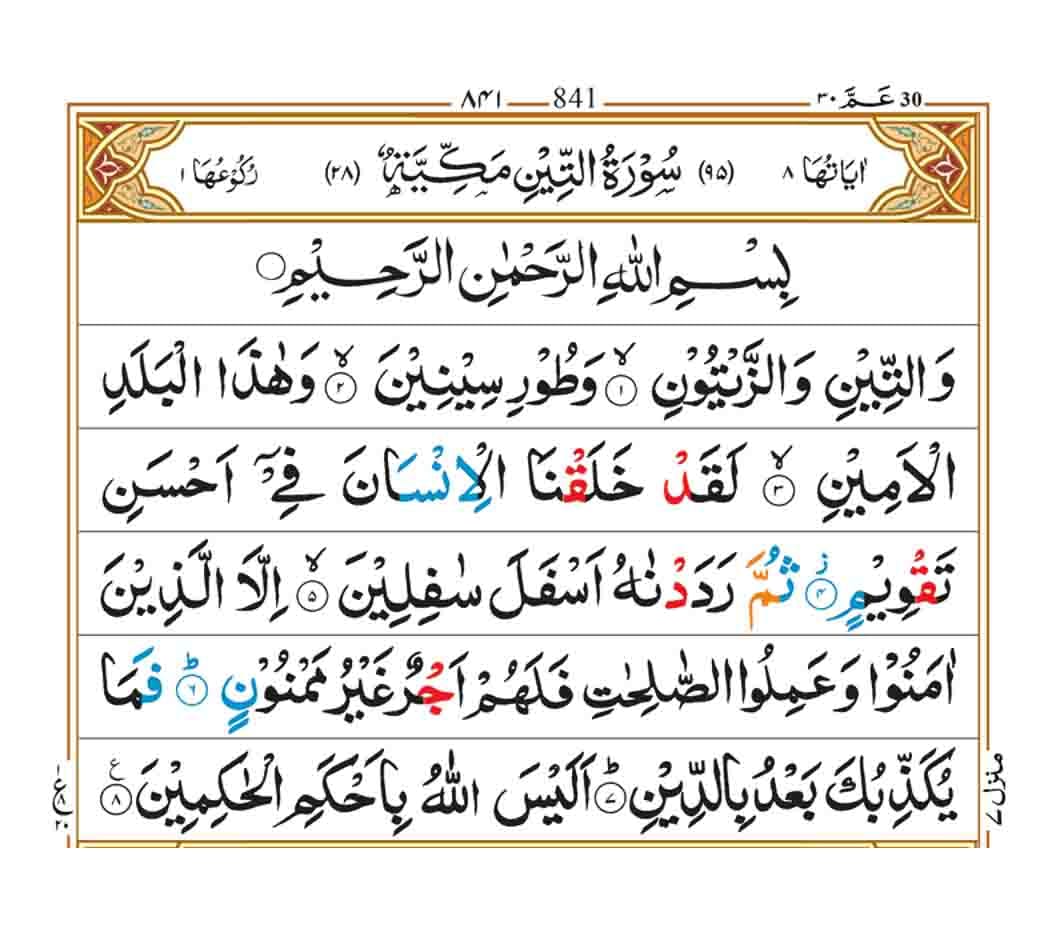Surah At Tin
The Surah begins with four powerful oaths:
“By the fig and the olive, and Mount Sinai, and this secure city (Makkah)…”
(At-Tin 95:1–3)
These oaths reference both symbolic fruits and sacred places connected with Prophethood and divine guidance—such as Jerusalem, Mount Sinai, and Makkah.
The Surah then makes a profound declaration:
“Indeed, We created man in the best stature.”
(At-Tin 95:4)
However, those who turn away from truth fall to the lowest of the low—except those who believe and do righteous deeds. The Surah ends by reaffirming the reality of Divine Judgment.
Surah At Tin Overview
| Surah At Tin Ayats | Surah At Tin Words | Surah At Tin Letter | Surah At Tin Ruku |
| 8 | 34 | 162 | 1 |
Listen Surah At Tin Online
Colour Coded Tajweed Rules

Read Surah At Tin Online

Meaning & Importance of Surah At Tin
Surah At-Tin communicates the dignity and potential of human beings. Allah created mankind in the best form, but the path one takes—faith or denial—determines their final outcome.
Key themes of the Surah include:
Human excellence: Allah honored humans with intellect, emotion, and spirituality.
Accountability: Actions define our fate—righteousness uplifts, sin degrades.
The justice of Allah: A reminder that Allah is the fairest of all judges and no deed is hidden from Him.
Symbolism of locations and foods: Refers to the importance of prophetic lands and blessed nourishment, both physically and spiritually.
“Then We return him to the lowest of the low – except for those who believe and do righteous deeds…”
(At-Tin 95:5–6)
Virtues & Benefits of Surah At Tin
Promotes self-reflection about one’s purpose and potential.
Reinforces the value of faith and righteous behavior.
Reminds of Allah’s perfect justice and ultimate Day of Judgment.
A short and easy Surah to memorize and teach children.
Excellent for daily recitation to internalize values of dignity, faith, and accountability.
Surah At-Tin is a powerful reminder of the honor Allah gave to mankind, and how that honor is maintained through faith and good deeds. It contrasts the elevated potential of humanity with the consequences of moral failure, and concludes with an emphatic affirmation that Allah is the most just of all judges.
Read More Surahs
Surah Yaseen | Surah Maryam | Surah Yusuf |
Surah Waqiah | Surah Kahf | Surah Rahman |
Surah Juma | Surah Muzammil | Surah Falaq |
